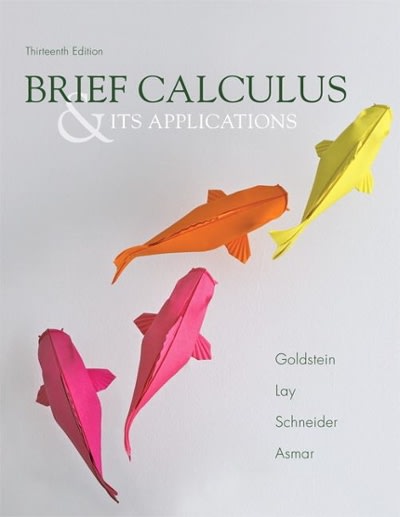Answered step by step
Verified Expert Solution
Question
1 Approved Answer
For questions 1-3, refer to the following information: Breast milk is recognized globally as the ideal form of nutrition for most infants for optimal growth
For questions 1-3, refer to the following information: Breast milk is recognized globally as the ideal form of nutrition for most infants for optimal growth and development. Although most mothers initiate breastfeeding, many face multiple barriers to continue in the US. This includes a lack of policies that support parental leave and lactation support programs in the workplace. Data from Kortsmit K et al, found that among 12,301 childbirths, 21% of mother had both paid leave greater than or equal to 3 months, and continued to breastfeed for three months or more; whereas 13% had less than 3 months of paid leave, and breastfed for less than 3 months. Only 26% of mothers reported having leave for 3 months or more. Hint: Start by drawing a Venn diagram. Note: Data comes from Kortsmith K et al., Am J Public Health. 2021;111(11):2036-2045. We are using the terms used from the study, but I do want to recognize that there is growing recognition to use more inclusive terms like chest feeding or body feeding that are now characteristic of this research. What is the probability that a randomly chosen mother continues to breastfeed at 3 months or more given that they had paid leave for 3 months or more? (3 points) 0.29 0.44 0.71 0.81 0.85 Is breastfeeding for three months or more independent from having paid leave for 3 months or more? Why or why not? (2 points) Yes, because P(BF and PL) = 0. Yes, because P(BF and PL) = P(BF) * P(PL). No, because P(BF and PL) 0. No, because P(BF and PL) P(BF) * P(PL). Cannot be determined from the given information. What is the probability that a randomly chosen mother continues to breastfeed at 3 months or more given that they had paid leave for 3 months or more? (3 points) 0.29 0.44 0.71 0.81 0.85 Is breastfeeding for three months or more independent from having paid leave for 3 months or more? Why or why not? (2 points) Yes, because P(BF and PL) = 0. Yes, because P(BF and PL) = P(BF) * P(PL). No, because P(BF and PL) 0. No, because P(BF and PL) P(BF) * P(PL). Cannot be determined from the given information
Step by Step Solution
There are 3 Steps involved in it
Step: 1

Get Instant Access to Expert-Tailored Solutions
See step-by-step solutions with expert insights and AI powered tools for academic success
Step: 2

Step: 3

Ace Your Homework with AI
Get the answers you need in no time with our AI-driven, step-by-step assistance
Get Started


